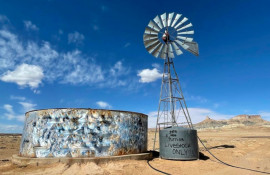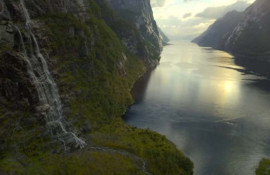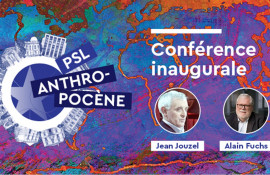
Earth Day: a webinar with New York University
To celebrate Earth Day, Université PSL and New York University are organizing a webinar: Reflections on Human Life on Earth: From our Deep History to the Post Anthropocene.
Having now entered the Anthropocene, an era marked by climate warming and a looming biodiversity crisis, humanity is at a crossroads.
Professor LeDoux and Professor Lestel will present their reflections on human life from the perspectives of their disciplines and research and engage in a conversation on the future of life on Earth.
Presentation from Pr. LeDoux: As Soon as There Was Life There Was Danger
Complex organisms have brain circuits for detecting and responding to danger, the deep roots of which go back to the first cells. But these circuits do not make fear, and fear is not the cause of why we freeze or flee. Fear is a human invention, and if other animals have conscious experiences, they cannot have the kinds of conscious experiences we have, because they do not have the kinds of brains we have. This is not a declaration about the wonders of the human brain, since we have done some wonderful, but also horrific, things with our brains. In fact, we are on the way to a climatic disaster that will not, as some suggest, destroy the Earth. But it will make it inhabitable for our kind. Bacteria have made it for billions of years and will likely be fine. The rest is up for grabs, and, in a very real sense, up to us.
Presentation from Pr. Lestel: The Post-Anthropocene world and our "Hyper-Future”
What will come after the Anthropocene and therefore after us? Will the Post-Anthropocene era be the world “after humanity” (end of the world for the humans); the world “after humans as we know them” (post human); or the world "after the human environmental footprint" (back to Paleolithic Times)? By reflecting on these distant and extreme futures, we could actually be able to rethink our current relationship with nature and our place among other living species.
Joseph LeDoux is Professor of Neural Science and Professor of Psychiatry at NYU. Joseph LeDoux is a University Professor and directs the Emotional Brain Institute at NYU. His work focuses on the brain mechanisms of emotion, memory, and consciousness. LeDoux has received a number of awards for research, and is an elected member of the American Academy of Arts and Sciences and the National Academy of Sciences USA. He is also the author of several books, including The Emotional Brain, Synaptic Self, Anxious and The Deep History of Ourselves. As a sideline, he is the lead singer and songwriter in the rockband, The Amygdaloids, and in the acoustic duo So We Are.
Dominique Lestel is Professor of Philosophy at École Normale Supérieure-PSL in Paris, France. Pr. Lestel's philosophical work has been significant in recent efforts to rethink animality and human-animal relations. He is the author of many works including Eat that Book: A Carnivore’s Manifesto (Columbia University Press, 2016). Pr.Lestel has been notably teaching and researching in thefollowing institutions: MIT, University of California San Diego, Boston University, School of the Institute of Art of Chicago, University of Tokyo, University of Keio (Japan).
Phillip John Usher is Professor of French Literature, Thought and Culture at NYU. Pr. Usher researches Comparative and French literature. He is especially known for his work on the relationship between early modern French literature and ecological thought. Pr.Usher is notably the author of "Exterranean: Extraction in the Humanist Anthropocene" (Fordham University Press, 2019).
Emilienne Baneth-Nouailhetas is Professor of Literature &Vice-President International Relations at Université PSL. Pr. Baneth-Nouailhetas oversees PSL’s international strategy and partnerships for the Sustainable Development Goals. She was formerly Attaché at the French Embassy in Indonesia and in Washington, and Deputy Director of the CNRS Institute for the Humanities and Social Sciences.
This event is jointly organized by Université PSL, Paris, France, and New York University, New York, USA.


